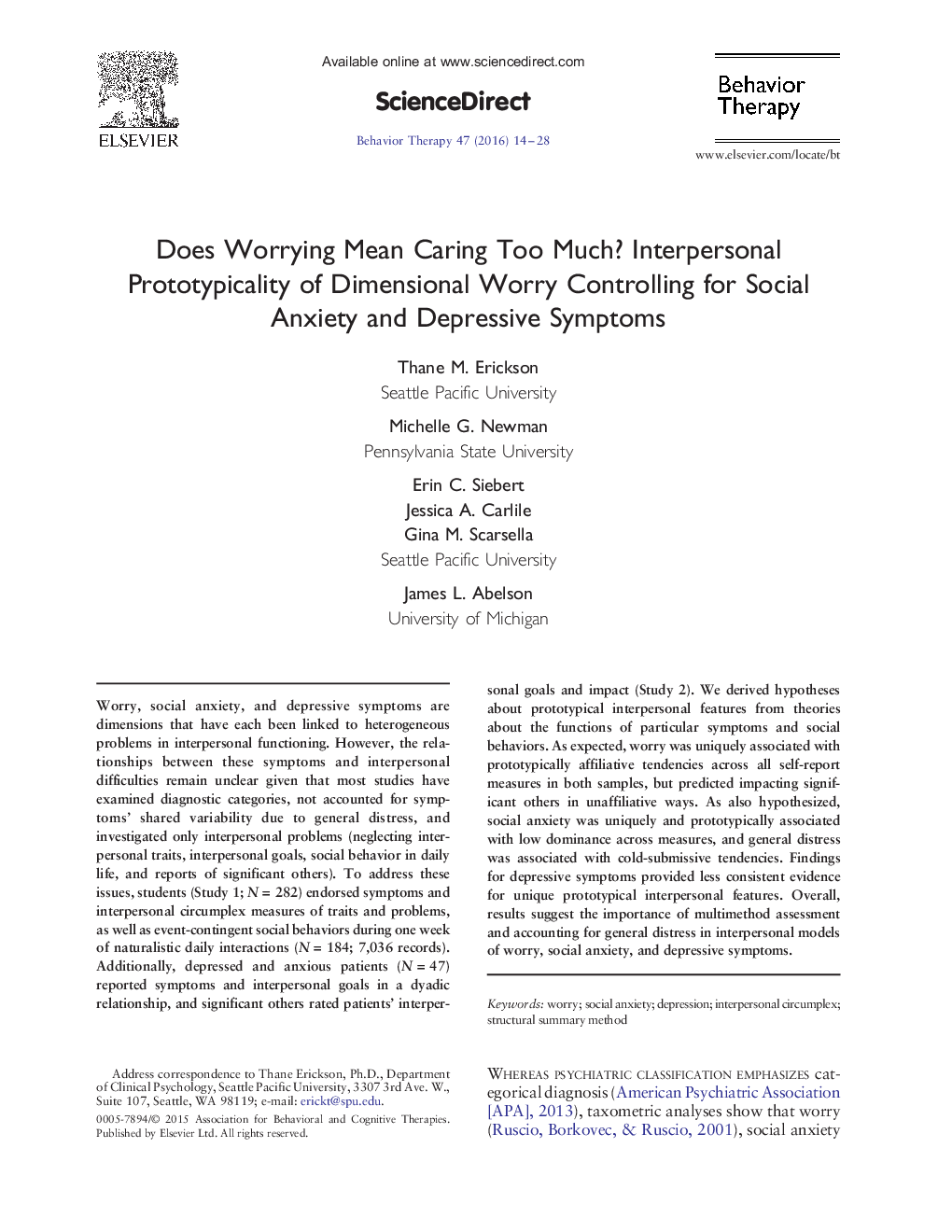| Article ID | Journal | Published Year | Pages | File Type |
|---|---|---|---|---|
| 901208 | Behavior Therapy | 2016 | 15 Pages |
•We examined prototypical interpersonal features of worry, social anxiety, and depressive symptoms.•Worry uniquely predicted self-reported high affiliation across self-report measures.•Worry uniquely predicted low affiliation as rated by significant others.•Social anxiety uniquely predicted self-reported and informant-rated submission.•Unique effects of depressive symptoms varied by type of interpersonal measure.
Worry, social anxiety, and depressive symptoms are dimensions that have each been linked to heterogeneous problems in interpersonal functioning. However, the relationships between these symptoms and interpersonal difficulties remain unclear given that most studies have examined diagnostic categories, not accounted for symptoms’ shared variability due to general distress, and investigated only interpersonal problems (neglecting interpersonal traits, interpersonal goals, social behavior in daily life, and reports of significant others). To address these issues, students (Study 1; N = 282) endorsed symptoms and interpersonal circumplex measures of traits and problems, as well as event-contingent social behaviors during one week of naturalistic daily interactions (N = 184; 7,036 records). Additionally, depressed and anxious patients (N = 47) reported symptoms and interpersonal goals in a dyadic relationship, and significant others rated patients’ interpersonal goals and impact (Study 2). We derived hypotheses about prototypical interpersonal features from theories about the functions of particular symptoms and social behaviors. As expected, worry was uniquely associated with prototypically affiliative tendencies across all self-report measures in both samples, but predicted impacting significant others in unaffiliative ways. As also hypothesized, social anxiety was uniquely and prototypically associated with low dominance across measures, and general distress was associated with cold-submissive tendencies. Findings for depressive symptoms provided less consistent evidence for unique prototypical interpersonal features. Overall, results suggest the importance of multimethod assessment and accounting for general distress in interpersonal models of worry, social anxiety, and depressive symptoms.
